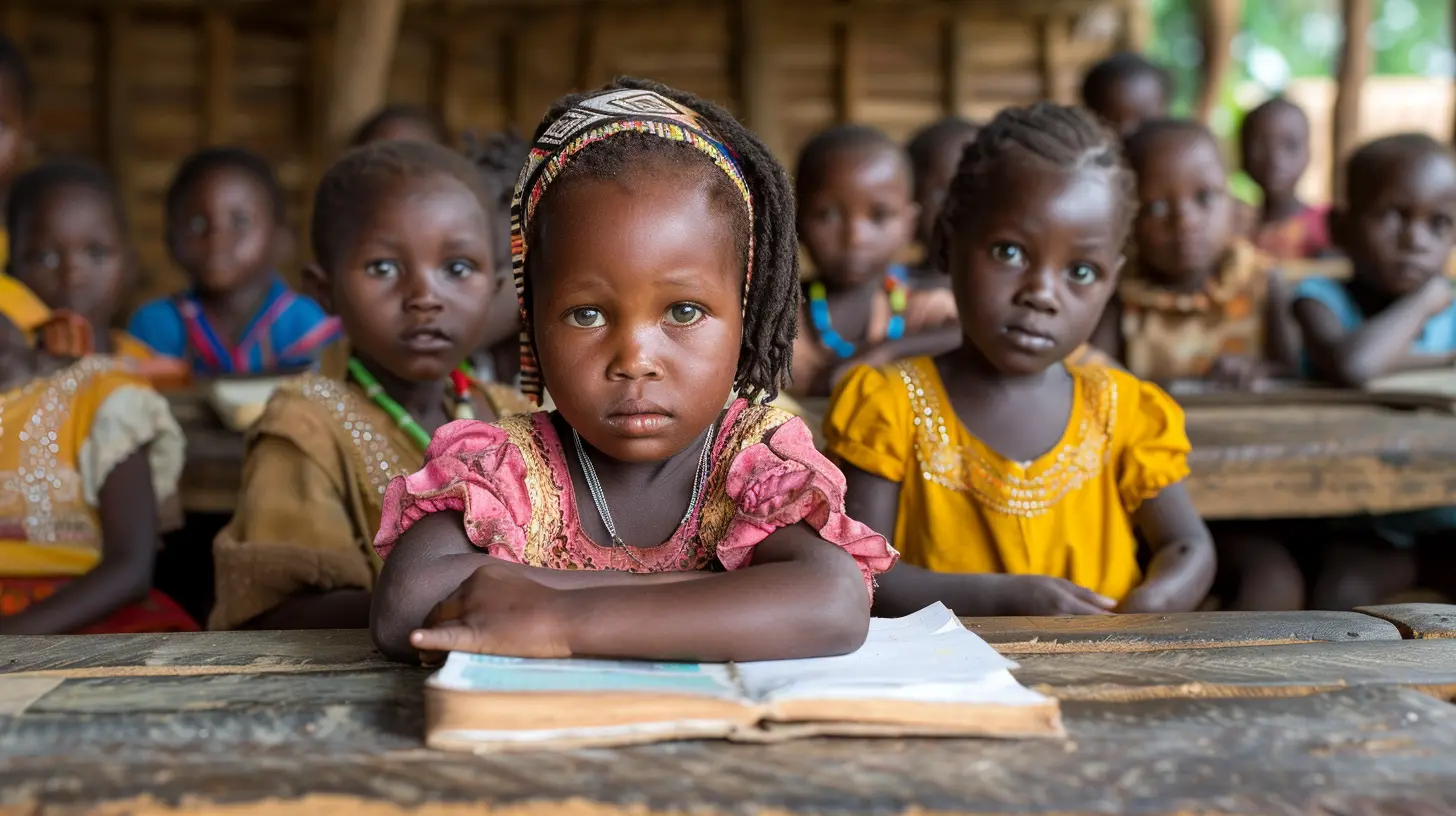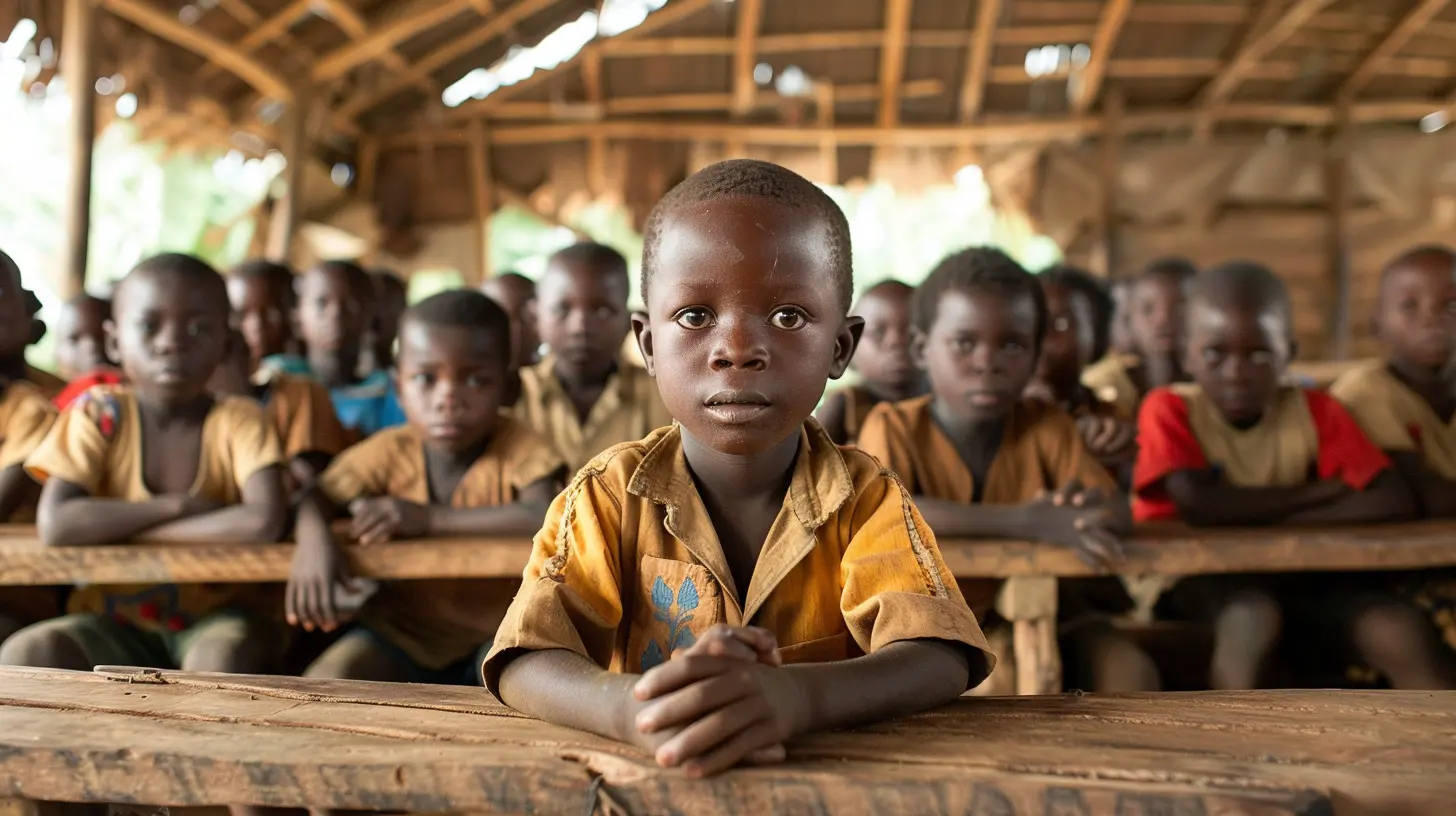1 April 2025
Early childhood education (ECE) is more than just a stepping stone to primary school—it's a driver of long-term success for individuals and entire societies. When children receive quality education from an early age, they develop essential cognitive, social, and emotional skills that lay the foundation for lifelong learning. But beyond individual benefits, ECE plays a crucial role in shaping economies, reducing inequalities, and fostering global development.
In this article, we’ll dive deep into why early childhood education is critical, how it impacts global development, and what challenges still need to be overcome.

Why Early Childhood Education Matters
1. Brain Development Happens Rapidly in Early Years
Did you know that by the time a child turns five, their brain is already 90% developed? Early childhood is a period of rapid brain growth, where neural connections are formed at an astonishing rate. Every interaction, experience, and learning opportunity shapes a child's cognitive abilities, making early education crucial for their future success.Children who receive quality early education are more likely to develop strong problem-solving skills, emotional intelligence, and resilience—traits that contribute to success later in life.
2. Laying the Foundation for Learning
Imagine building a house without a solid foundation—it wouldn’t stand for long, right? The same principle applies to education. Early childhood education provides the fundamental skills children need to thrive in school and beyond. It introduces them to basic concepts in literacy, numeracy, and communication, ensuring they’re well-prepared for primary education.If children miss out on these early learning experiences, they often struggle to catch up later, widening the gap between them and their peers.
3. Developing Social & Emotional Skills
Beyond academic learning, early education teaches kids how to interact with others, express emotions, and build relationships. These social and emotional skills are just as important as intellectual development. Children learn how to share, cooperate, and resolve conflicts—skills that will benefit them throughout life.A well-rounded early education program helps children grow into confident and emotionally stable individuals, reducing behavioral issues and increasing their chances of success in future education and employment.

How Early Childhood Education Drives Global Development
1. Reduces Poverty & Inequality
One of the most powerful effects of early childhood education is its ability to break the cycle of poverty. When children from underprivileged backgrounds have access to quality education, they gain the skills needed to improve their economic situation later in life.Studies have shown that individuals who receive early education are more likely to complete higher levels of schooling, find stable jobs, and earn higher incomes. This not only benefits individuals but also strengthens economies by reducing dependence on social welfare programs.
2. Boosts Workforce Productivity
A well-educated population is a productive one. Early childhood education helps create a skilled workforce that drives economic growth. Countries with strong ECE programs tend to have higher literacy rates, better employment opportunities, and a more innovative labor force.Investing in early education pays off in the long run, as nations with higher education levels experience stronger economies and lower crime rates.
3. Promotes Gender Equality
Education is one of the most effective tools for closing the gender gap. When young girls receive early education, they are more likely to continue their studies, delay early marriage, and participate in the workforce.In many developing countries, cultural and financial barriers prevent girls from accessing education. By prioritizing early childhood education, societies can create more opportunities for women, leading to greater gender equality and economic empowerment.
4. Improves Health Outcomes
Education and health go hand in hand. Children who receive early education are more likely to adopt healthier lifestyles, be informed about nutrition, and access necessary healthcare services.Additionally, educated parents are more likely to ensure their children receive proper healthcare, vaccinations, and nutrition, creating a ripple effect that improves public health on a larger scale.

Challenges in Expanding Early Childhood Education
Despite its undeniable benefits, ECE faces several barriers globally.1. Lack of Access & Affordability
Many low-income families simply cannot afford early education programs. In developing nations, access to formal preschool education is still limited, leaving millions of children without the resources they need to succeed.Governments and organizations must work to make early education more accessible by introducing free or affordable programs, especially for marginalized communities.
2. Shortage of Trained Educators
Quality education depends on quality teachers. Unfortunately, many countries face a shortage of trained early childhood educators. Without proper training, teachers may not be equipped to provide children with the right learning experiences.Investing in teacher training programs is essential to ensure children receive the best possible education during these formative years.
3. Inconsistent Government Policies
Not all governments prioritize early childhood education equally. In some countries, ECE is underfunded or lacks clear policies, making it difficult to expand programs effectively.Stronger government support, increased funding, and clear education policies are necessary to improve access and quality worldwide.

What Can Be Done to Strengthen Early Childhood Education?
The good news is that solutions exist. Here’s what can be done to improve early childhood education globally:1. Increase Government Funding
Governments must allocate more resources to early education programs to ensure they are accessible to all children, regardless of economic background.2. Support Parental Involvement
Parents play a crucial role in their child’s early education. Encouraging parental involvement through workshops, resources, and community programs can enhance learning outcomes.3. Train & Support Educators
Investing in teacher training and providing competitive salaries can attract and retain quality educators in early childhood education.4. Implement Inclusive Policies
Policies should be designed to ensure equal access to education for children of all backgrounds, including those with disabilities and those in rural areas.5. Public-Private Partnerships
Collaboration between governments, private sectors, and NGOs can help fund and expand early childhood education programs more effectively.Conclusion
Early childhood education is not just a privilege—it’s a necessity for global development. Investing in early education creates a ripple effect that benefits individuals, societies, and economies for generations.By prioritizing early learning, we can break cycles of poverty, reduce inequalities, and build a more educated and prosperous world. The question now is: will we take the necessary steps to ensure every child gets the foundation they deserve?




Harlow Griffin
Early childhood education isn't just a luxury—it's a necessity for global progress. Investing in our youngest minds lays the foundation for sustainable development, breaking cycles of poverty and inequality. We must prioritize and champion early education as a critical global imperative.
April 2, 2025 at 10:25 AM